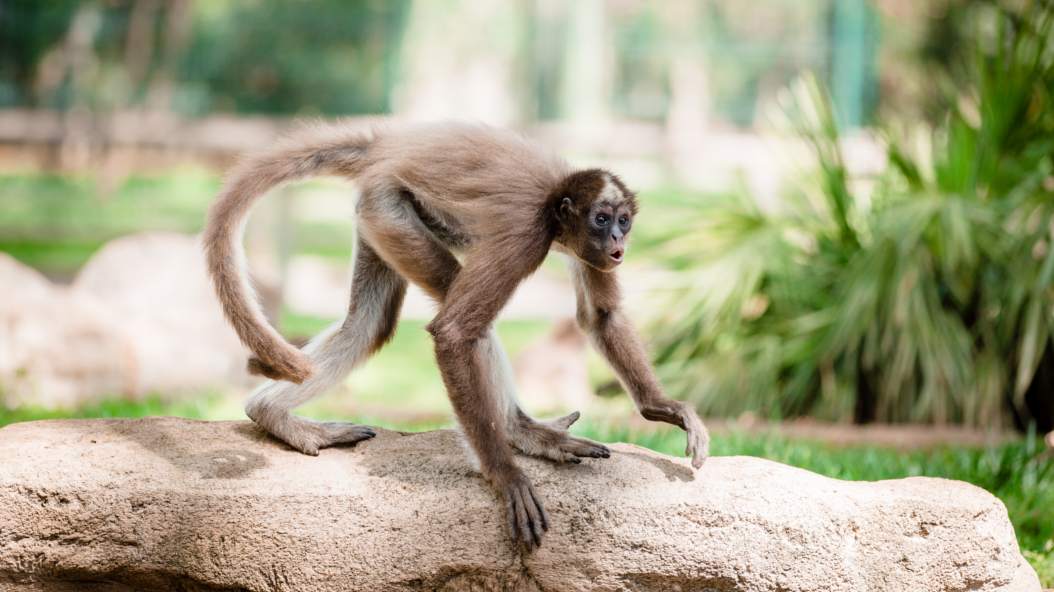On 15 December 2014, Oli was born at the Zoo, a male brown spider monkey (Ateles hybridus). His mother, Perla, who was a first time mother, did not know how to raise him adequately and—faced with an extremely high risk of death—we decided to raise him with a bottle. All the primate caretakers at the Zoo intensively cared for him for six months, feeding him and giving him the support he needed to develop properly and, in parallel, have some type of contact with his family. If family ties are completely lost, future reintegration with the group is not possible, and integration was our objective.
Oli advanced very slowly in his locomotive and social skills, which made everything more difficult. However, his carers would not give up or be discouraged and did everything possible to help him. The application of play therapy developed for the Zoo’s primate section was decisive, which gave him the confidence he seemed to be lacking in order to move forward (playing creates a relaxed atmosphere that favours social interaction between individuals). Bit by bit, with a lot of hard work and affection, Oli's total reintegration with his family was finally possible in February 2017. Since then, he has led a normal life with his group, made up of his parents Perla and Sito, another young male and four females.
The case of Oli is the first individual from this species to completely reintegrate with his family. We are very satisfied because the experience and knowledge acquired are not only really useful to us, but sharing them with other colleagues working in the world of conservation lets us do our small part for the conservation of this critically endangered species.
The brown spider monkey (Ateles hybridus) is one of the most critically endangered species in the Neotropics. It inhabits the region from northern Colombia to northwest Venezuela in the flatland rainforests, wooded shores and low mountain jungles at no more than 700 metres of altitude.
This primate has strictly tree-dwelling customs and its limbs are extremely long, as well as its prehensile tail, which acts as a fifth limb and helps it move among the branches of trees.
They are gregarious animals and move through the jungles in small subgroups of some four individuals, although they can form larger groups with between 30 and 40 members. They reach sexual maturity late and give birth to a single baby after a gestation of seven and a half months. Adults weigh from seven to nine kg.
According to the IUCN Red List, this species is critically endangered. Its natural population has shrunk by 45% in the last 45 years due to hunting and the loss of habitat.




